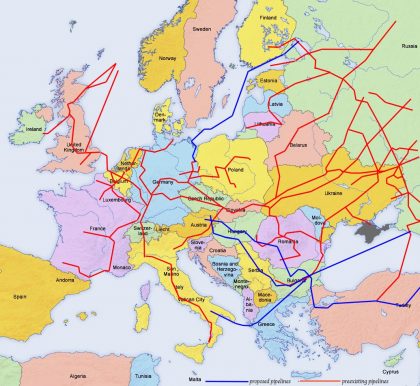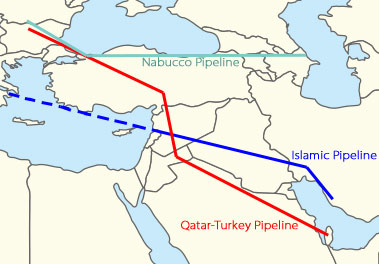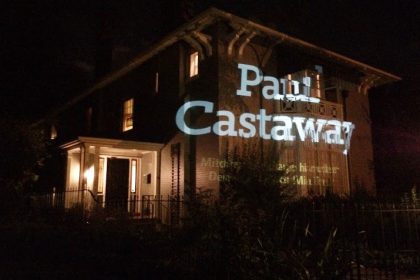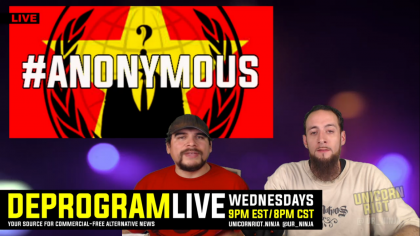Pipeline Politics in the Syrian Civil War
Oil politics in the Syrian civil war is a complex web of money deception and proxy war. What began as non-violent grassroots rebellion against Bashar al Assad and the Syrian state has morphed into a complex proxy war involving countless factions and alliances competing for control of oil, and territory. Various nation states and world powers who have their own financial interests in the region are supporting the armies on the ground. This is because of Syria’s strategic importance as a potential gatekeeper between oil reserves from the gulf and oil markets in Europe. There are two different proposed pipelines that will have to run through Syria in order for this to happen. One sponsored by the gulf states called the “Qatar-Turkey pipeline” and one sponsored by the Iranians and Syrians nicknamed the “Islamic pipeline”.
Europe’s Dependence on Russian Gas
Since the 1990s, Europe has been increasingly dependent on Russian natural gas and oil. In 2014 it was estimated that 42% of the European Union’s natural gas imports originated from Russia. This dependence has limited Europe’s ability to make a show of force against Russia. Last year the U.S introduced economic sanctions against Russia in retaliation for its annexation of Crimea. When the US asked the EU to participate, there was a heated debate amongst the European nations about how exactly to impose sanctions. Eastern Europeans felt especially threatened by Russia’s actions and wanted to enact the harshest penalties possible, however, Western Europeans were well aware that cutting off economic trade with Russia would destabilize their economies. As a result the European Union (EU) has desperately been looking for other sources of natural gas. The “pipeline” which will carry natural gas from Azerbaijan into Europe will help to offset dependence on Russian gas, but will take years to reach full capacity and will not rid Europe of Russian dependence altogether. On top of which European demand for natural gas is expected to rise dramatically in the next 30 years. There is only one known source of gas that can solve Europe’s long term energy needs and that’s source resides in the Middle East underneath the Persian Gulf.
Both Qatar and Iran control what is known as the “South Pars” / “North Dome” field, the largest known gas field in the world. Both countries are keen on building their own gas pipelines to Europe. In 2009 Qatar proposed a pipeline that would run from its “North Dome” gas field through Saudi Arabia, Syria and Turkey on the way to Europe. In 2011 Syria rejected the offer in order to “protect the interests of our Russian ally, which is Europe’s top supplier of natural gas.” Instead the Syrians decided to sponsor Iran’s proposed “Islamic pipeline” which would bring Iranian natural gas from the “South Pars” gas field into Iraq and Syria and across the Mediterranean Sea on its way to Europe, bypassing Turkey altogether.
Qatar-Turkey Pipeline Rejected, Turkey and Gulf States Respond
In July of 2011, large sections of the Syrian army defected and formed a resistance movement called the “Free Syrian Army” (FSA). This marked the definite end of the non violent protest movement and the beginning of the Syrian civil war. Coincidentally, in the very same month, the monumental Islamic pipeline project worth $10 billion was approved by Syria. The proposed pipeline would have seen “an estimated 3.9 billion cubic feet of natural gas per day” pumped into Iraq, Syria and Europe. The Syrian state’s inability to squash the rebellion has delayed those plans indefinitely.
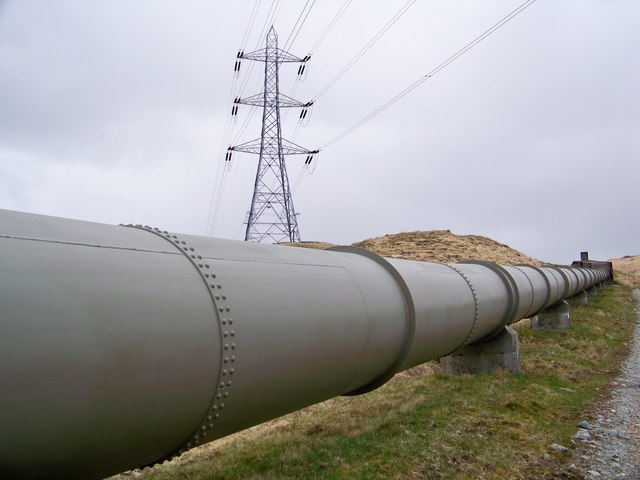
Qatar and its gulf state allies (Saudi Arabia, UAE etc) have spent billions supporting the Syrian rebels and Jihadists in order to dispose of Assad and run their own gas pipeline through Syria. At the same time the Iranians are supporting the Syrian state in hopes of defeating the Syrian rebels and resuming work on their pipeline. Russia is also supporting the Syrian state since it has major economic and military ties to Syria. Recently, Russia has stepped up its military support for the Syrian regime by sending more sophisticated weapons and Russian military advisors to help train Syrian troops. To make matters worse, on the other side of Syria’s northern border, Turkey is now making preparations to invade Syria.
Turkey: Gatekeeper to the West
Since the start of the Syrian civil war, Turkey has played a crucial role in supporting the Syrian opposition against Bashar Al-Assad’s regime. This support has mostly been limited to military training, arms smuggling, and economic aid to the Syrian rebels. As the war intensifies and the Kurdish military forces in Syria (YPG/YPJ) gains ground in northern Syria, they have begun to play a more direct role. Turkey has been waging a decades-long war against the oppressed minority Kurdish both within and outside their borders. They have no intention of allowing the formation of an autonomous Kurdish region along the border. At the same time, the YPG/YPJ are being militarily supported and protected by US warplanes in their fight against Islamic State. Therefore Turkey can only hope to contain the Syrian kurds while waging a more confrontational and hands-on war against the YPG/YPJ Turkish allies the PKK (Kurdistan Workers Party).
Turkish Repression of Kurds Backfires: Embers of War Reignite
In 2013 the PKK and the Turkish state signed a ceasefire that effectively ended their decades-long war. All of that changed after the 2015 Suruç bombing, in which IS suicide bombers killed 33 students and allies of the Kurdish struggle in Syria. The PKK alleges the Turkish state was involved and they proceeded to assassinate a Turkish police officer who they claim had connections to the IS bombers. As a result, starting in late August airstrikes were launched against both IS and Kurdish PKK bases within Turkey and parts of northern Iraq. These air strikes have mostly targeted the PKK though the press, generally only reporting about Turkish strikes against IS.
Turkey has also proposed the idea of setting up a buffer or “safe zone” along their border with Syria. This zone is being envisioned to extend some 68 miles long and 40 miles deep reaching the outskirts of the besieged city of Aleppo. Turkey claims to want to set up a safe zone which will be free of militants and provide humanitarian aid for fleeing civilians. Most likely what Turkey really wants is to use this zone as a means to prevent Kurdish YPG/YPJ militants in the east from linking up with their comrades to the west. Turkey understands that a unified Kurdish region along its border would completely destroy any remaining hope left for a Qatar-Turkey pipeline. A unified Kurdish resistance in northern Syria would also mean cutting off the Islamic State from the Turkish border where they receive a substantial amount of supplies, money, and arms. So far, Turkey has allowed IS to conduct business on their border because IS is the prime enemies of the Kurds. Turkey has long denied accusations that they are supporting IS in anyway. However, recent evidence obtained from a US special forces raid in Syria suggests that there is a direct link between IS oil smugglers and high ranking Turkish officials. On top of which, a recently released report from the US Defense Intelligence Agency (DIA) predicted the rise of IS by elaborating on “the possibility of establishing a declared or un-declared Salafist principality, which is exactly what the supporting powers (Turkey, Qatar etc) to the opposition want”.
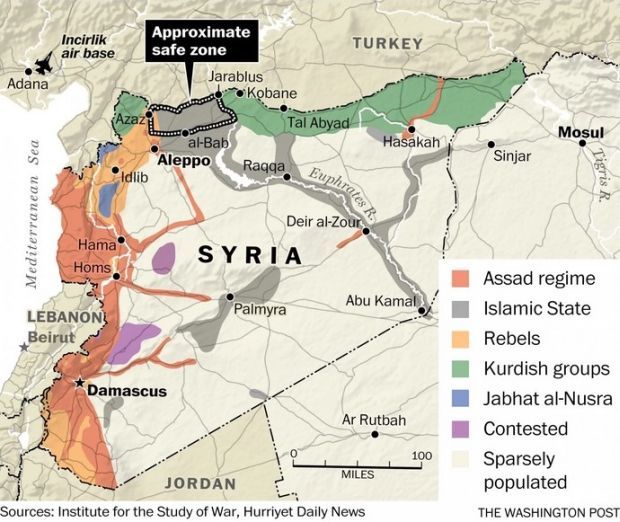
Initially the U.S resisted Turkey’s efforts to create a buffer zone due to the concern that such a zone could assist radical Islamist forces like the Islamic State. Recently a deal was struck between the two nations that allows for the existence of a buffer zone in exchange for US warplanes being allowed to use Turkey’s “Incirlik” Airforce base to refuel. Turkey has been given the go ahead by the US to launch its invasion, but it is hesitant to do so. Much of this has to do with the fact that Turkish military forces are currently busy fighting Kurdish rebellions within their own country. The Turks are also aware of the risks and substantial cost involved in setting up and maintaining a buffer zone. However, so long as Kurdish forces do not cross the the so called “red line”, the Euphrates river, into Islamic state territory, then the Turkish army may be content to stay on their side of the border for now.

Pipedreams Deferred: Negotiated Settlement
For the time being the war in Syria has indefinitely delayed construction of both Iranian and Qatar natural gas pipelines. However, there exist a third, more feasible route that could bring much needed gas supplies from Iran gas fields into Europe. As early as 2007 the so called “Persian” pipeline had been proposed by the Iranians to bring gas from the Persian Gulf through Turkey before the Islamic pipeline’s route was proposed through Syria. This project, however, was put on hold after the EU introduced sanctions on the country in 2010. A crucial reason why the EU had been so eager to reach a deal with Iran over its nuclear program is because Europe has a strong desire to do business with Iran. With the cementing of the “Iran deal” and the subsequent lifting of the sanctions, Europe is free to do just that. This will undoubtedly re-open the possibilities of constructing the Persian pipeline which has the potential to radically alter the balance of power in the middle east.
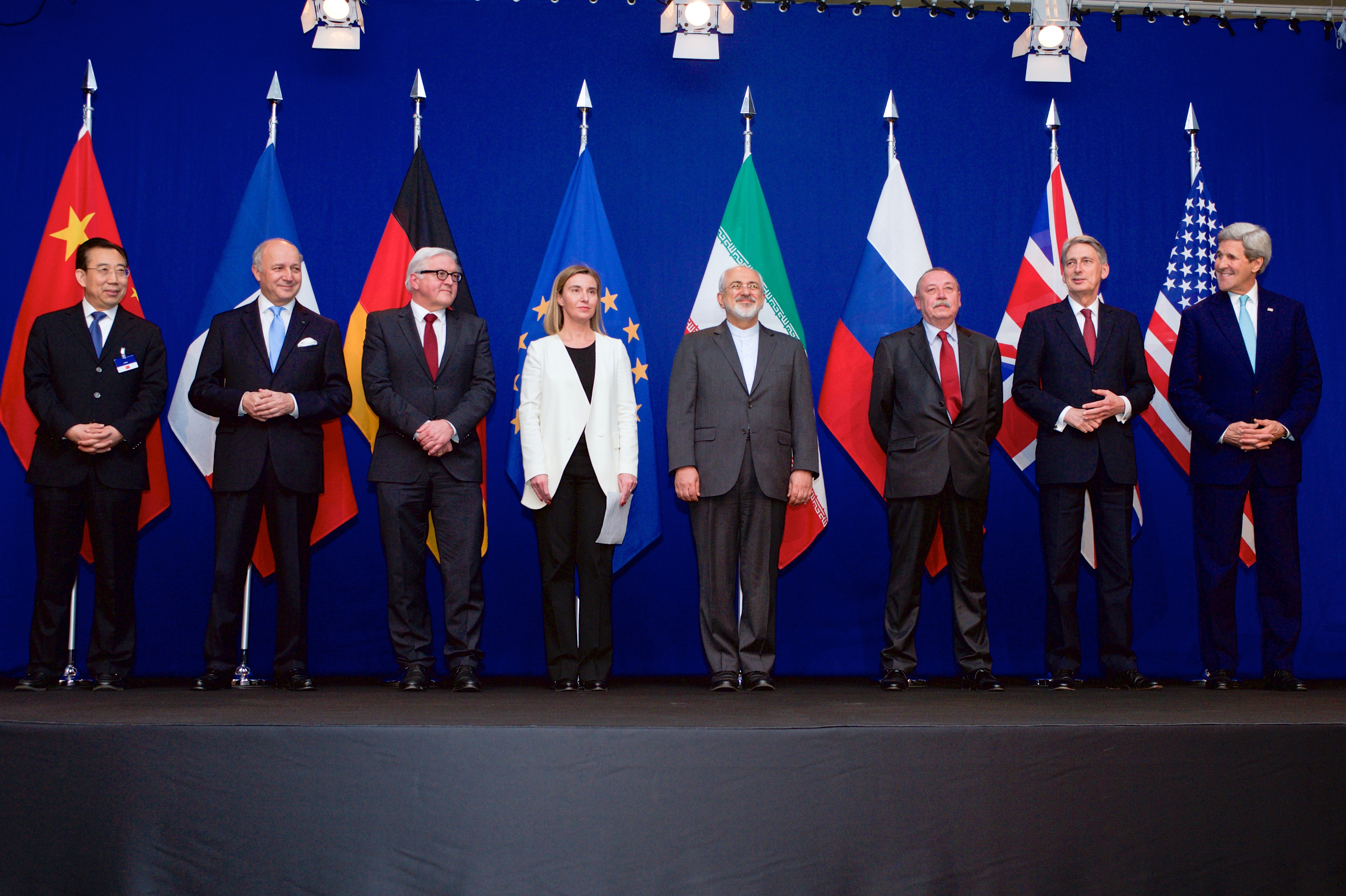
Even so, analysts predict it will take some time to construct a pipeline that can transport Iranian gas to Europe. It remains to be seen whether the new “Iran Deal” will hold up long enough for such a project to become reality. An even bigger question is whether Russia would allow its primary ally in the middle east to become a threat to its dominance over the European gas market. Nevertheless, due to the Syrian civil war, the EU is now desperately looking towards Iran rather than Qatar to solve its increasing energy needs. Whether this strategy will work out in the long term depends on many complex factors. One appears certain: so long as the west continues to depend on middle eastern natural gas and oil reserves, proxy war, poverty and pipeline politics will likely continue to plague the Middle East for decades to come.
Unicorn Riot original reporting on Syria:
- International Volunteers of the Rojava Revolution - DOCUMENTARY FILM - (2019)
- Looking Beyond the Rubble: Aiding the Kurds After the Syria, Türkiye Earthquake (April 25, 2023)
- Revolution in Every Country Comic Series: Episode 1 – Syria: Erasing an Inconvenient Revolution (June 5, 2022)
- Origins of the PKK and the ‘Rojava’ Revolution: Part II (September 18, 2021)
- Origins of the PKK and the ‘Rojava’ Revolution: PT. I (August 3, 2021)
- Building Autonomy Through Ecology in Rojava (February 28, 2018)
- Kurdish Fighters Defend Afrin From Turkish Military Invasion in Northern Syria (January 25, 2018)
- Kobane Rebuilds as ISIL Control Diminishes in Syria (December 27, 2017)
- As Course of War Turns, Turkey Challenges Democratic Federation of Northern Syria (Rojava) (October 30, 2017)
- Solecast #20 Rojava Special w/ Janet Biehl (January 9, 2016)
- Pipeline Politics in the Syrian Civil War (September 20, 2015)
- Youth Press Conference Bombed in Turkey - Deprogram Ep. 12 (July 23, 2015)

